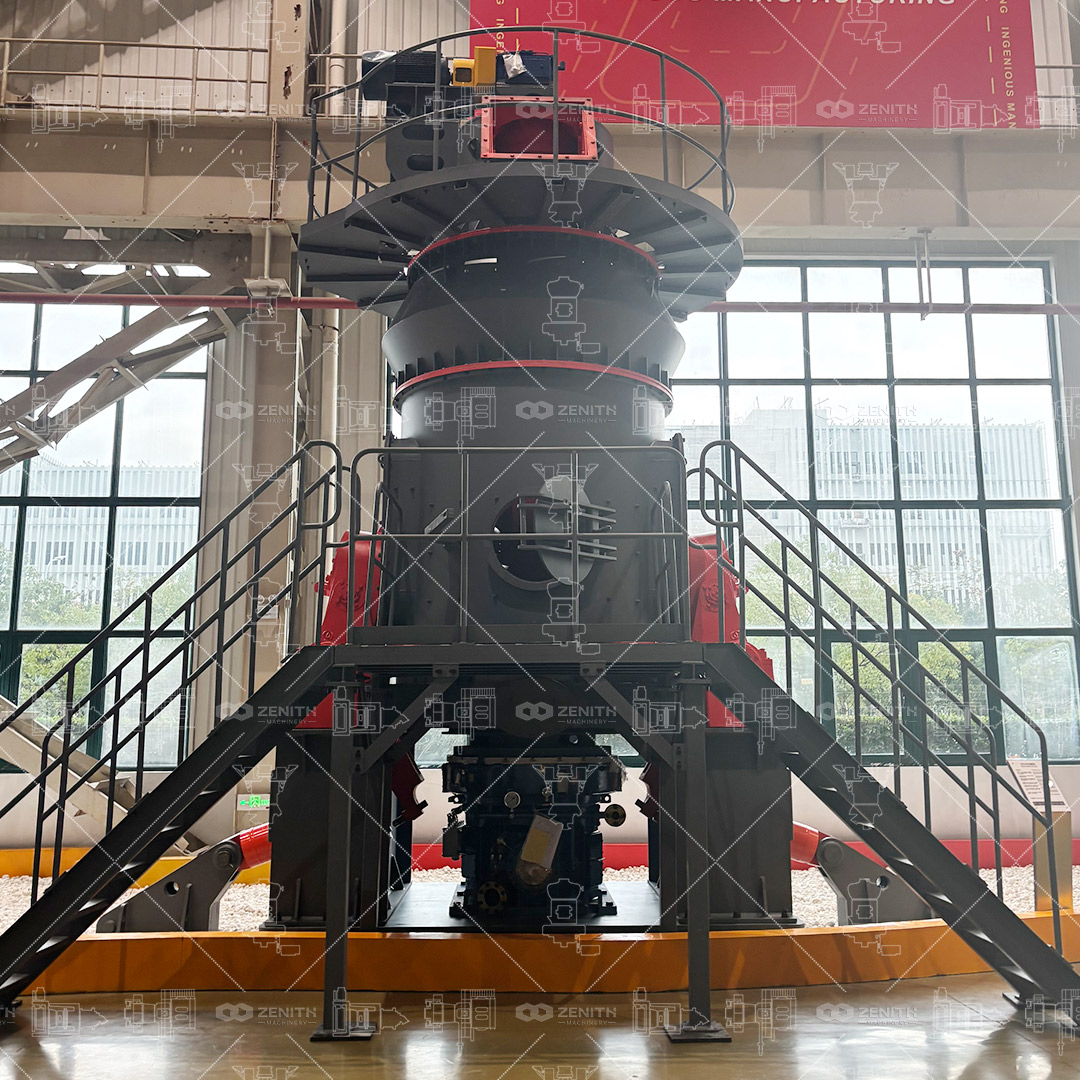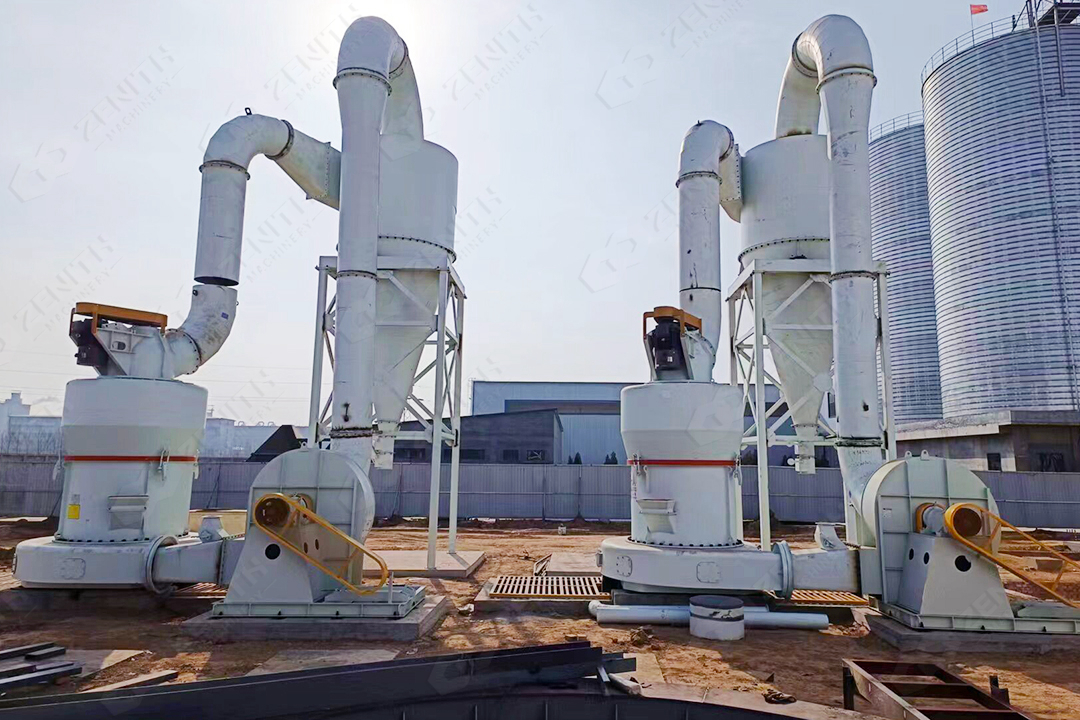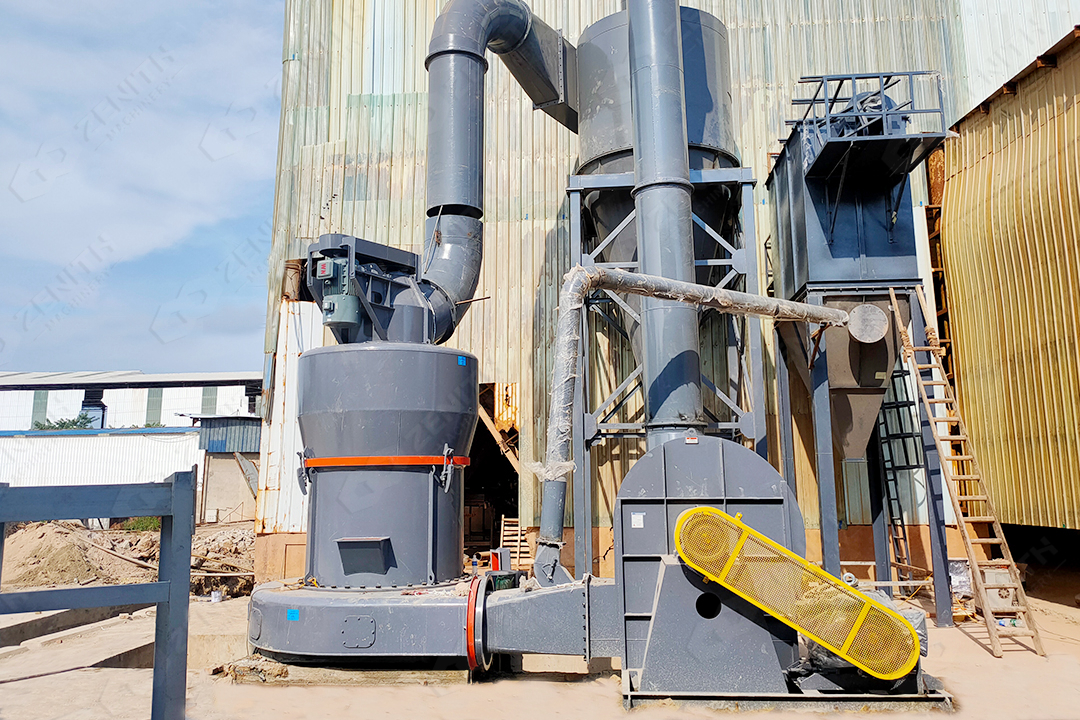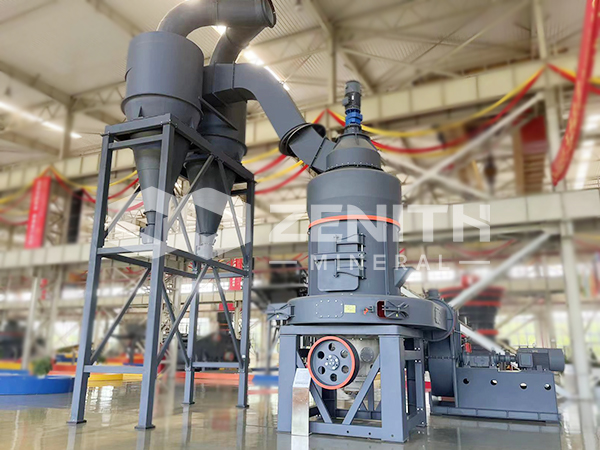Limestone ground to 120 mesh is used in asphalt mixing plants.
2025-11-18 18:55:18
In the highly competitive world of asphalt production, every component matters. Among these, limestone ground to precisely 120 mesh has emerged as a crucial ingredient that significantly impacts both the quality and performance of the final asphalt product. This specific particle size represents the sweet spot where optimal packing density meets superior binding properties, creating asphalt mixtures that stand the test of time and traffic.
_1763463318023.jpg)
The journey from raw limestone to precisely ground 120 mesh powder requires sophisticated grinding technology. At Shanghai Zenith Machinery, our engineering team has spent decades perfecting grinding solutions specifically designed for mineral processing applications like asphalt production. The 120 mesh specification (approximately 125 microns) provides the ideal balance between surface area and particle distribution that enhances the asphalt's durability, workability, and resistance to deformation.
Why does 120 mesh limestone make such a difference? The answer lies in particle packing theory. At this specific fineness, the limestone particles fill the voids between larger aggregates more efficiently, creating a denser matrix that reduces air voids in the final asphalt product. This improved density translates to enhanced durability, better resistance to water infiltration, and reduced aging from oxidation. Additionally, the increased surface area at 120 mesh provides more binding sites for the asphalt cement, resulting in improved adhesion and cohesion within the mixture.
_1763463318026.jpg)
For asphalt plants seeking reliable 120 mesh limestone production, our MTW European Trapezium Mill stands as an exceptional solution. With its capacity range of 3-22 T/H and ability to produce powder from 30-325 mesh, this machine offers the precision and flexibility needed for consistent 120 mesh output. The MTW series incorporates an advanced impeller adjustment system that allows operators to fine-tune the fineness with remarkable accuracy, ensuring every batch meets the exact specifications required for high-quality asphalt production.
What truly sets the MTW mill apart in industrial applications is its energy efficiency. Consuming more than 60% less energy than traditional ball mills of the same capacity, this technology significantly reduces operational costs while maintaining superior product quality. The high-efficiency impeller fan, with air induction efficiency improved from 62% to 85%, ensures optimal material flow and classification, critical factors when producing the consistent 120 mesh limestone that asphalt plants depend on.
For operations requiring even higher capacity or continuous running capabilities, our LM Vertical Grinding Mill presents another compelling option. With throughput capacities ranging from 3-340 T/H and the ability to maintain 24-hour constant operation, this vertical roller mill excels in high-volume production environments. The automated control system ensures consistent 120 mesh output with minimal operator intervention, while the compact design reduces footprint requirements by approximately 50% compared to ball mill systems.

The environmental considerations of limestone grinding cannot be overlooked, particularly as regulatory standards become increasingly stringent. Our grinding systems operate under negative pressure with comprehensive dust collection, ensuring that the production of 120 mesh limestone meets even the most demanding environmental standards. This closed-system approach not only protects the workplace environment but also maximizes material recovery, contributing to both ecological and economic efficiency.
Beyond the technical specifications, the real-world performance of 120 mesh limestone in asphalt applications demonstrates why this specific gradation has become an industry standard. Asphalt mixtures incorporating properly ground limestone show improved workability during placement, better compaction characteristics, and enhanced resistance to rutting and cracking. The mineral filler effect of the 120 mesh particles improves the stiffness modulus of the asphalt binder, leading to pavements that better withstand heavy traffic loads and temperature variations.

At Zenith Machinery, we understand that reliability and maintenance considerations are paramount in asphalt plant operations. That's why our grinding equipment incorporates features like reversible wearing parts, hydraulic adjustment systems, and accessible maintenance points. These design elements minimize downtime and ensure that the production of critical 120 mesh limestone filler remains consistent throughout the demanding asphalt production season.
The global reach of our technology – with marketing networks covering more than 180 countries and overseas offices in more than 30 nations – means that asphalt producers worldwide have access to grinding solutions optimized for their specific limestone sources and production requirements. Our certifications, including ISO international quality system certification, European Union CE certification, and Customs Union CU-TR certification, provide assurance of quality and compliance regardless of location.

As asphalt technology continues to evolve, with increasing emphasis on performance specifications and sustainability, the role of precisely ground limestone becomes even more critical. The ability to consistently produce 120 mesh material with the exact particle size distribution required for modern asphalt designs represents a competitive advantage that forward-thinking producers cannot ignore. With grinding technology that combines precision, efficiency, and reliability, Zenith equipment provides the foundation for this essential capability.

The integration of advanced grinding technology into asphalt production represents more than just an equipment upgrade – it's a strategic investment in product quality, operational efficiency, and long-term competitiveness. By mastering the production of 120 mesh limestone, asphalt plants position themselves to meet the increasingly demanding specifications of modern pavement engineering while controlling costs and maximizing equipment utilization.
Frequently Asked Questions
What makes 120 mesh limestone particularly suitable for asphalt production?
120 mesh limestone provides optimal particle packing density, enhancing the asphalt's durability, workability, and resistance to deformation. This specific fineness creates a denser matrix that reduces air voids and improves binding with asphalt cement.
How does the MTW European Trapezium Mill ensure consistent 120 mesh output?
The MTW mill features a modular impeller adjustment system that allows precise fineness control. Combined with advanced airflow classification, it maintains consistent 120 mesh production with minimal variation batch to batch.
What energy savings can I expect compared to traditional ball mills?
Our MTW and MTM series mills consume more than 60% less energy than ball mills of equivalent capacity, significantly reducing operational costs while maintaining product quality.
Can your grinding equipment handle different types of limestone?
Yes, our mills are designed to process various limestone types with different hardness and moisture content. The adjustable parameters allow optimization for specific material characteristics.
What maintenance requirements should I anticipate?
Our grinding systems feature reversible wearing parts and accessible maintenance points, typically requiring scheduled inspections and component replacements based on operational hours and material abrasiveness.
How does the environmental performance of these mills meet regulatory standards?
Our mills operate under negative pressure with integrated pulse dust collectors, ensuring no dust spillage and compliance with international environmental standards for particulate emissions.
What production capacity range is available for 120 mesh limestone?
We offer grinding solutions from 3 T/H to 340 T/H, allowing selection based on specific production requirements from small asphalt plants to large-scale industrial operations.









